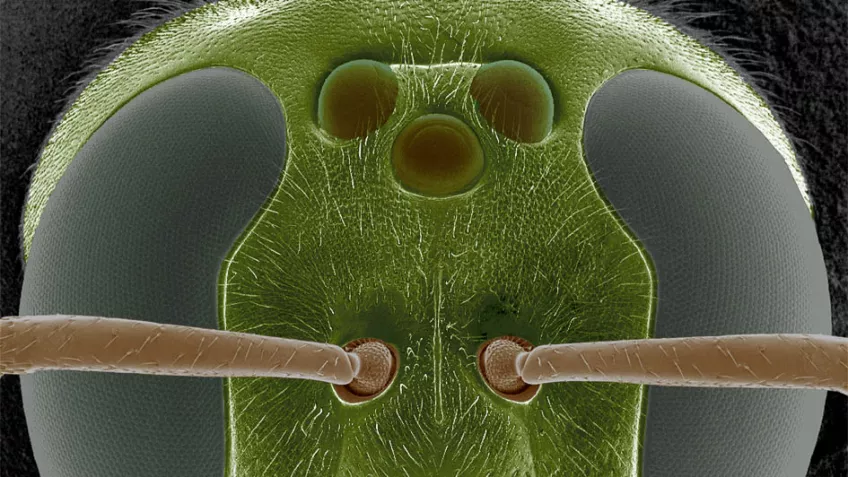PhD courses
We offer courses at a PhD level as a part of your postgraduate studies.
The Department of Biology offers courses at a postgraduate level to both internal and external PhD students. Contact the person responsible for the course to get information about prerequisites and how to apply.
This graduate course in evolutionary biology emphasises the various evolutionary processes rather than descriptions of states, patterns and the methods to establish them. It covers all levels of biological organisation and temporal and spatial scales. It does so by a conceptual and general approach, although ample reference will be made to well-known organisms and biological systems. When appropriate, examples from experimental evolution will be discussed from a theoretical perspective.
Course organisation
The course will be run for 5 days in one week. The course will have elements from genetics (molecular, population, quantitative), ecology, developmental biology and palaeontology. There is mathematics, but not beyond basic algebra and simple calculus. The course is explicitly interdisciplinary and synthesising.
Time-period
We give the course every year in the autumn. The course will be held in the Ecology building, Sölvegatan 37, Lund. The next time we will give the course is 23–27 October 2023.
Credits
Completion of the course renders 2 credits.
Registration
Send an email to Nathalie Feiner. A limited number of places are available!
Contact person
Nathalie Feiner
Researcher
E-mail: Nathalie [dot] Feiner [at] biol [dot] lu [dot] se
The course is about the Department of Biology, PhD student rights and responsibilities, the history of biology, introduction to the philosophy of science, scientific publishing, science and society, and sustainable graduate education.
Course organisation
The course consists of lectures, seminars and written assignments.
Time period
4–8 March 2024.
Credits
Completion of the course renders 1.5 credits.
Registration
You register by sending an email to Emma Kritzberg. Write "Registration – intro course 2024 as a subject and your name and unit affiliation in the main body.
Contact
Emma Kritzberg
Professor
Telephone: 046 222 40 79
Email: Emma [dot] Kritzberg [at] biol [dot] lu [dot] se (Emma[dot]Kritzberg[at]biol[dot]lu[dot]se)
Klas Flärdh
Professor
Telephone: 046 222 85 84
Email: Klas [dot] Flardh [at] biol [dot] lu [dot] se
This course gives an introduction to the use of microscopy-based methods in life science today. Both PhD students and master’s students are welcome to take this course. The emphasis is on fluorescence microscopy, and theoretical principles of confocal microscopy and image deconvolution. We give an overview of different types of advanced research microscopes and the principles of the most common advanced methods. Another important aspect is the preparation and optimisation of samples for microscopy, both fixed samples and tissue sections, as well as living samples. The course also includes a theoretical introduction to digital visualisation, with emphasis on fluorescence-based methods, including a brief introduction to ImageJ and basic analysis of digital images.
Course organisation
In addition to lectures, seminars, and demonstrations, the course includes two projects. A literature project and a practical bioimaging project.
Time-period
We give the course once a year in the latter part of the spring term.
Registration
Send an e-mail to Klas Flärdh.
Credits
Completion of the course renders 7.5 credits.
Contact person
Klas Flärdh
Professor
Telephone: +46 46 222 85 84
Email: Klas [dot] Flardh [at] biol [dot] lu [dot] se
In this course, the world's leading authorities in sensory ecology are invited to Lund to deliver an outstanding program of lectures covering all animal senses.
Course organisation
We give this course in September/October every second year. Next time 22 September to 5 October 2024.
Registration
Places will be allocated on a first-in-first-served basis until the maximum number of places is filled (40 places). You must include a poster title in the form and send in a poster abstract before the registration time ends. More information about the course and how you apply.
Course fee
Unfortunately, due to the worsened financial climate, the course is no longer subsidised, and we are forced to raise the course fee significantly. In 2024 the course fee will be 15 500 SEK.
Credits
Completion of the course renders 6 credits.
Contact
All inquiries should be directed to Sensory [dot] Ecology [at] biol [dot] lu [dot] se.
In this course, you will get an introduction to R, and learn about binomial-, poisson- and normal distribution, descriptive statistics and graphs, hypotheses testing, t-test, ANOVAs, correlation, regression, multiple and non-linear regression, chi-square, G-tests, log-linear modelling, logistic regression and survival, discriminant, PCA and cluster analyses.
Course organisation
We usually run the course two days a week for 7-8 weeks during November–January, with lectures in the mornings and exercises in the afternoons. Participants may need to spend some time on the exercises between scheduled events. For your planning, you will have access to the exercises in advance.
Registration
Please e-mail questions and enrolment requests to Øystein Opedal.
Credits
Completion of the course renders 7.5 credits.
Contact person
Øystein Opedal
Associate senior lecturer
Telephone: +47 922 331 89
Email: Oystein [dot] Opedal [at] biol [dot] lu [dot] se
We also offer courses within the course package Life Sciences (managed by the Department of Chemistry).
Our graduate research school in integrative biology offers courses that encompass topics from genomics to phenomics.
PhD courses at other departments
You may also find suitable courses offered by other departments and faculties.


